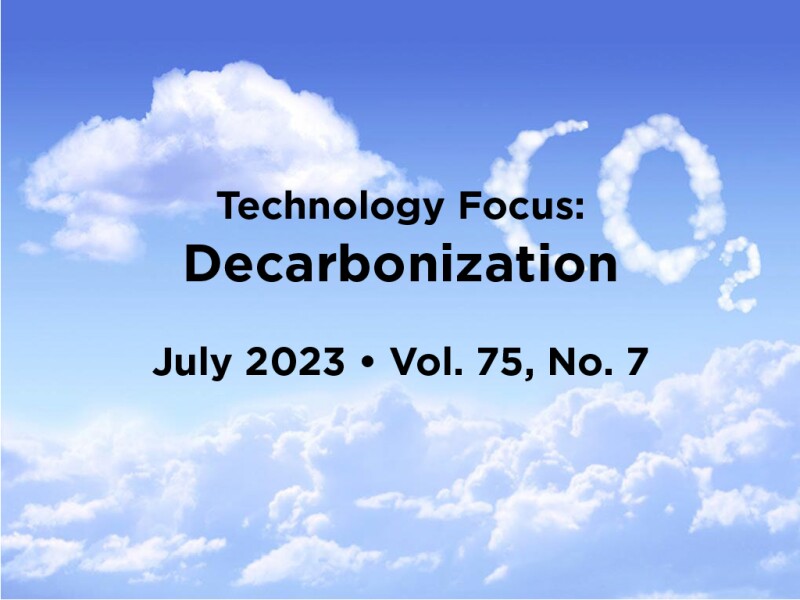With several applications under its belt, carbon capture and sequestration (CCS) is a proven technology. Costs are a concern, however, when it is not accompanied with CO2 enhanced oil recovery. Naturally, the effort is now to bring down costs by understanding various aspects of the process. This is reflected amply in the overwhelming majority of the approximately 300 papers on emissions reduction produced since late 2021 at various SPE conferences. These cover a range of CCS-related topics, such as onshore to offshore applications, drilling operations, well metallurgy, well-flow modeling, repurposing wells, storage capacity, and reservoir suitability.
Because the basics of CCS and carbon capture, use, and storage (CCUS) are mostly familiar to a large part of the readership, I am choosing to bring to your attention the summary of those articles that are devoted to approaches other than or beyond CCS, even if they have to climb further on the development ladder. These include bio-based approaches, geothermal, and use of hydrogen as a substitute fuel. The first of these papers discusses the generation of biomethane and hydrogen from palm oil mill effluent and using hyperthermophile bacteria. The second deals with making use of seaweeds such as Macrocystis pyrifera, commonly found in desertic or semidesertic climates though thermal conversion to hydrogen. The third deals with mangrove restoration for biomass growth and carbon fixation.
For further reading and interest I have two topics to suggest: geothermal and hydrogen. Geothermal is not a new technology, but selecting and targeting the right reservoir can make a huge difference to its commercial viability. In this respect, the readers will find the included paper to be a good atlas.
While I have been skeptical about hydrogen’s capacity to play an immediate role in decarbonization, the recommended paper focused on hydrogen challenges my preconceptions to an extent, and I think is therefore worthy of mention. In a 2019 International Energy Agency report, the cost of blue hydrogen from natural gas was mentioned to be approximately $1.50/kg in a few favorable jurisdictions, including the US. Can the cost of producing clean hydrogen from noncommercial gas pools be in the same range? The recommended-reading paper on this subject estimates the calculation-based cost of green hydrogen to be even 5–10 times more favorable. Although it may be premature to celebrate, given that this is still based on paper estimates and that other challenges in hydrogen storage and transport exist, it still bodes well for the commerce of clean hydrogen. While it causes optimism, caution is warranted, given significant challenges (not dwelled upon in the paper) in purification and sustainability of a subsurface hydrogen-production process.
I am confident you will find these papers to be interesting and stimulating reads.
This Month’s Technical Papers
Study Investigates Conversion of Biomethane From CO2 and Biohydrogen
Study Examines Ability of Macroalga To Produce Green Hydrogen
Mangrove Restoration and Conservation Effort in Niger Delta Used as Carbon Offset Option
Recommended Additional Reading
OTC 32035 A Fully Integrated and Updated Geothermal Gradient Atlas of the World by Susan Smith Nash, American Association of Petroleum Geologists, et al.
SPE 209558 Subsurface Hydrogen Generation: Low-Cost and Low-Footprint Method of Hydrogen Production by Roman Berenblyum, Hydrogen Source, et al.

Subodh Gupta, SPE, is the founder of and technology adviser for Heretech Energy, a Calgary-based consultancy firm advising on various surface and subsurface technologies for the decarbonization of oil. He has worked in the process and petroleum industry for more than 35 years. Previously, Gupta headed research and development efforts for organizations including Cenovus Energy and its predecessor companies, EnCana and Pan-Canadian Energy. He is credited with pioneering solvent use in thermal oil recovery, as well as with development of novel carbon sequestration approaches. Gupta is also the author of the upcoming book Energy and Decarbonization. Gupta has been an SPE distinguished lecturer, as well as a member of the Distinguished Lecturer Selection Committee. He has been an invited speaker and panelist to many conferences. Gupta holds a bachelor’s degree in chemical engineering from the Indian Institute of Technology and MS and PhD degrees from the University of Calgary.

